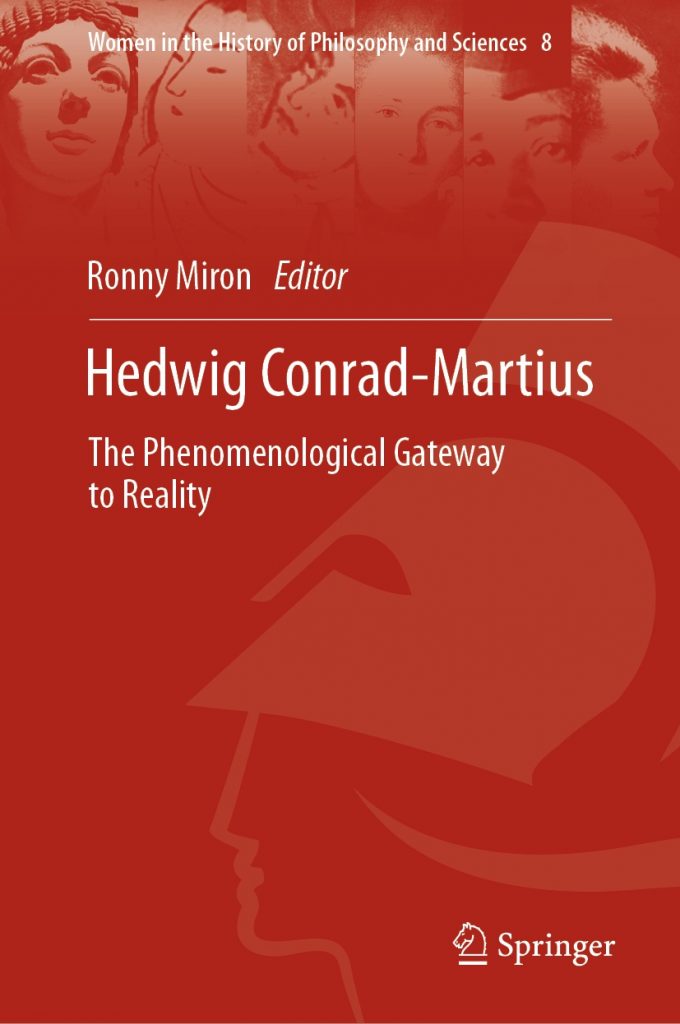This article seeks to unearth the philosophical resonance of Hedwig Conrad-Martius’ ideas with Edith Stein’s thinking and thus to add an element of content to the better-known personal relations between the two phenomenologists. Here, resonance has two meanings. The first is phenomenological and apparent in manifestation of a spiritual communality between the two philosophers. The second relates to the constitutive establishing of a new hermeneutical framework from which new possibilities might emerge for understanding the ideas under discussion. – Ronny Miron, A Philosophical Resonance: Hedwig Conrad-Martius Versus Edith Stein
This volume, the first of its kind written in English, interprets the realistic-phenomenological philosophy of Hedwig Conrad-Martius (1888-1966). She was a prominent figure in the Munich-Göttingen Circle, the first generation of phenomenology after Edmund Husserl (1859-1938), and was known as the “first lady of German philosophy”. The articles included in this collection deal with the two main themes constituting her realistic-metaphysical phenomenology: Being and the I. In addition, the collection includes a comprehensive Preface that describes the personal background and the social and philosophical contexts behind Conrad-Martius’s thought, with an emphasis on the mutual influence and fertilization of the group of early phenomenologists in the Munich-Göttingen Circle. The book will be of interest to scholars of philosophy and educated readers.
You cannot copy content of this page









